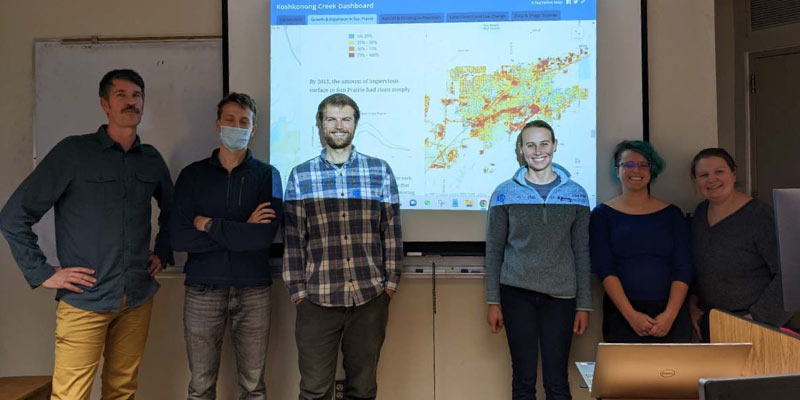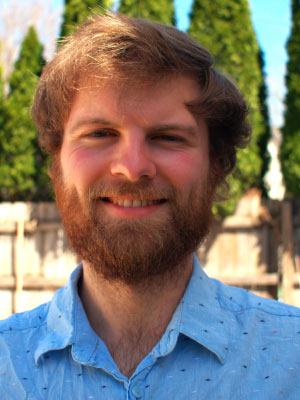
Being out in nature and working with the land is within graduate student Jesse Eddinger’s genes. Both sides of his family come from farming backgrounds, and Eddinger was raised on the same land his family farmed for generations. Though he doesn’t consider himself a farmer, Eddinger hopes to continue his family’s legacy of working the land in his own way, through earning his master’s degree in environmental observation and informatics (EOI) at the Nelson Institute.

From rural Pennsylvania, Eddinger discovered his passion for environmental science and agriculture in high school after taking AP environmental science. “And I knew that’s what I wanted to do with the rest of my life,” Eddinger said. He applied to Juniata College, a liberal arts college a few hours from his hometown, and earned a degree in environmental science. There, he spent his summers working as an agricultural consultant, gaining experience working with farmers, developing nutrient management plans, and flying drones.
Eddinger joined the Conservation Corps in Nevada after graduation, where he planned to spend his gap year between undergraduate and graduate programs. The gap year turned into a few years due to the COVID-19 pandemic, but Eddinger still knew he wanted to go back to school. He began researching graduate programs across the country and found the Nelson Institute.
The Nelson Institute’s Environmental Observation and Informatics (EOI) program is a 15-month MS degree that prepares students for a career at the intersection of the geospatial and environmental fields. Students learn digital image analysis and interpretation, geospatial data science, and programming, along with the policy and ethics of observational data.
After speaking with EOI program coordinator, Sarah Graves, Eddinger applied for the EOI program and said that Graves’ support was ultimately the deciding factor of where he would go. “It really aligned with my goals in conservation and agriculture,” Eddinger said. “Even though it’s not an ag-focused program, everyone has been very good about helping me meet the goals I have for my conservation career.”
Over the past year, Eddinger’s classes have offered hands-on projects to help build his skillset. From analyzing satellite imagery to learning how to code, he was even able to get out into the field and map water blockages along the Koshkonong Creek. He specifically enjoyed his classes with associate professors Mutlu Ozdogan and Annemarie Schneider whose courses introduced him to various remote sensing techniques and professionals currently working in the field.
Eddinger will finish out the EOI program with the United States Department of Agriculture (USDA) as part of his leadership project, the distance learning portion of the EOI program that connects students with organizations to set up and execute a plan based on the student’s interests and experience. Eddinger will work in the Badgerlands, south of Baraboo, Wisconsin, where he will study how planting native prairie strips can help increase plant renewal— a project he is more than enthusiastic about starting. “As soon as I heard what the USDA was doing, I knew I wanted to be in on that,” Eddinger said.
Eddinger hopes to stay in the Madison area upon graduation and apply his knowledge of remote sensing and conservation to the agricultural field. He reflects back on his EOI experience with the assurance that his skillset will take him far. “This was a really good program to reinforce the necessary skills I need for the careers that I will want to pursue,” Eddinger said.
Learn more about the environmental observation and informatics MS and how you can support the program.